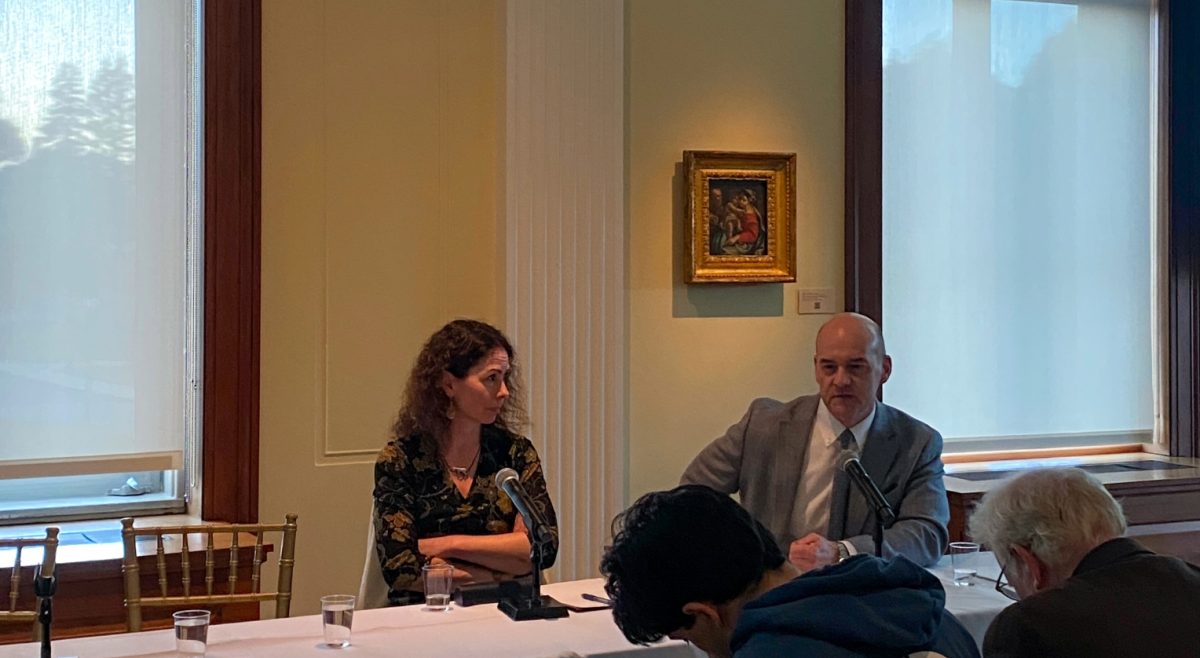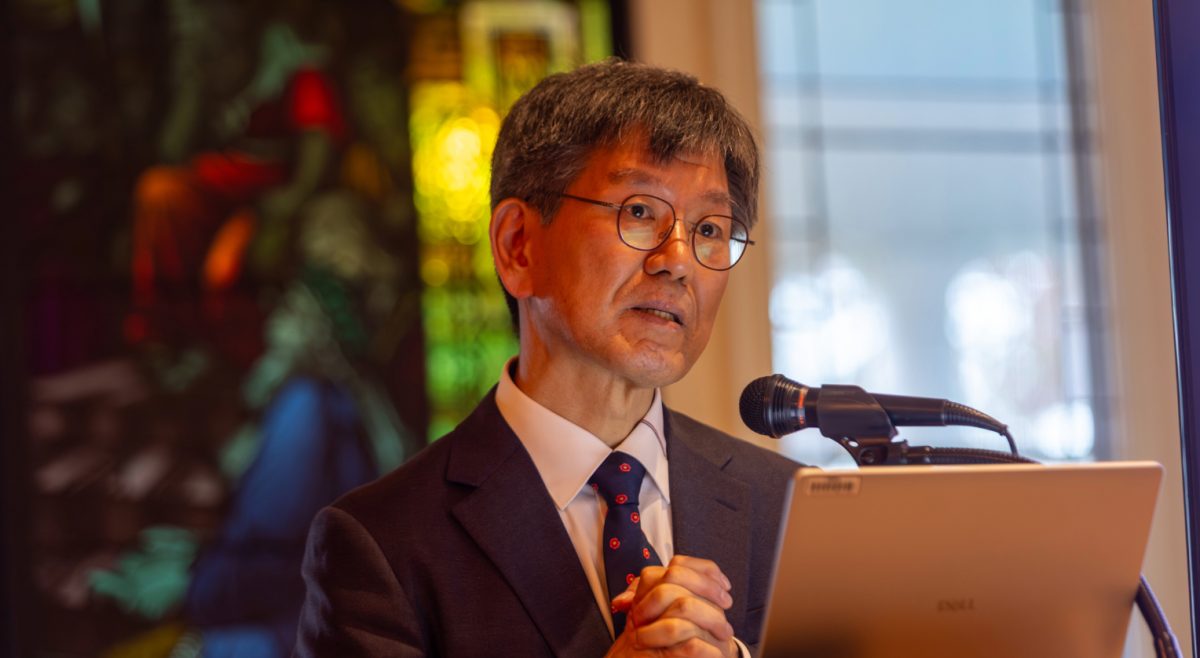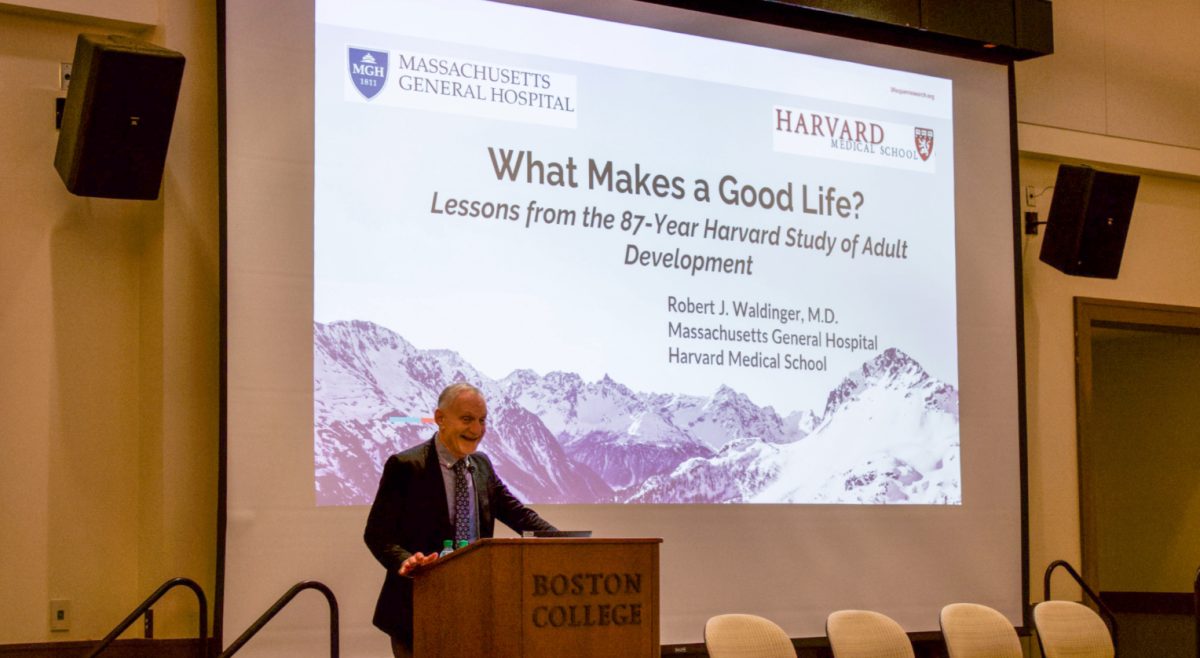Learn to Earn (LTE) is a remote training program that teaches East Africans basic computer skills and web design, with the hope that the local students will be able to get web design jobs and potentially pay their way through college.
Israel Kloss and his wife, Jennifer, oversee the East Coast efforts of the program. Kloss and his wife quit their jobs in 2012 and traveled to East Africa to see how they could be of more help. On their visit, they witnessed an 18-year-old’s first interactions with a computer-he was blown away by the experience of a mouse, motor skills, and his first mapping of hand to screen.
“I was floored by how basic computer training is-anyone could do it,” he said.
It was on this trip that the Klosses met Kenyan Cavin Ongogo. They kept in touch with him, teaching him web design principles and WordPress via remote training. As a result of this training, Ongogo was able to get a job and pay his way through college. He finished the pilot training program in 2013, graduated from college, and now directs LTE in Nairobi.
Through LTE, a mentor is matched with an East African student. LTE uses Massive Open Online Courses (MOOCs), which are free online courses through various colleges. These MOOCs are controversial because of their high dropout rate, “which is why we pair it with mentoring,” Kloss said.
Via Google Hangouts, mentors help supervise and teach their mentee basic computer skills-how to use WordPress, a content management system that can be installed like a piece of software-and allows users to design Web sites on home computers or remote servers. One doesn’t need to know programming language to use WordPress. “It’s as easy as Microsoft Word for building websites,” Kloss said. Mentors play the instructional video, ask their mentees questions about what they’ve just learned, and watch their mentees while they type and program to make sure they understand or see if they need help. Lessons range from how to type and what a browser is to basic programming skills.
LTE currently has Jennifer overseeing the curriculum and educational side; Israel overseeing fundraising and training in technology; Ongono supervising the program in East Africa; John Gallaugher, an associate professor in Boston College’s information systems department, as an advisor; and a volunteer team composed of three web developers and 15 mentors.
The Klosses and their team are now funding for a project, which will be included in Kloss’ three-credit research project for his MBA coursework at BC.
“Ongogo will install a computer lab in the Kisumu area of North Western Kenya, where he’s from,” Kloss said. “It will be a four-laptop lab to help kids like him-he’s an orphan-who have never seen a computer and need a baseline introduction to them in the elementary system.”
Students must pay for their education after eighth grade in Kenya. Consequentially, it is crucial for students to gain access to computers in their elementary years. The access to computers allows students to communicate with people in other countries, opening the world to them.
LTE is currently fundraising for its project through the website experiment.com-a platform on which researchers can post projects to fundraise and spread awareness. Anyone is able to donate, and if the project reaches its goal, the supporters are charged the amount they chose to donate, and the project can proceed.
The LTE project needs to raise $1,200 by Friday, March 28. If this goal is reached, the money will be used to fund the laptops, Internet, and accessories (such as a printer, wireless router, and Ethernet cables). If the goal is reached, Ongogo will begin reviewing applicant schools for the program. The lab will be installed and the program will start up between August and November.
Regardless of whether this funding goal is reached, LTE already has 15 Kenyan students who have signed up for the mentoring program via ihub.co.ke-a well-known startup incubator in Kenya. Kloss is interested in having BC students volunteer to serve as mentors. “I would love to see every Saturday, 15 people log on and mentor 15 individual students,” he said.
The mentoring sessions take place every Saturday from 4 to 5 p.m. There are no computer science requirements-mentors are only required to understand and type English, type 30 words per minute, and have access to a computer with Internet. Mentors would participate in an hour-long training session, go over computer basics, and take a more extensive class that teaches web design and WordPress, which would occur over Google Hangouts.
Mentors are able to interact on Google Hangout from wherever they choose and, as Kloss describes, the video images are extremely clear. The mentors teach the computer lesson with the aid of a video, answer questions, and help the mentees type and program.
The project has the potential to have broad impacts on Kenyan students and the East African work force. “When calculating the multiplier effect of the computer labs and mentors and students attending from five to seven different regions across East Africa, the impact of study will extend to 2,500 students across Kenya and Tanzania,” according to the project website.
Students interesting in becoming mentors for LTE can contact Israel Kloss at [email protected]. For more information on Kloss’s project and to donate, go to https://experiment.com/projects/can-free-and-remote-computer-training-expand-stem-enrollment-in-east-africa.






